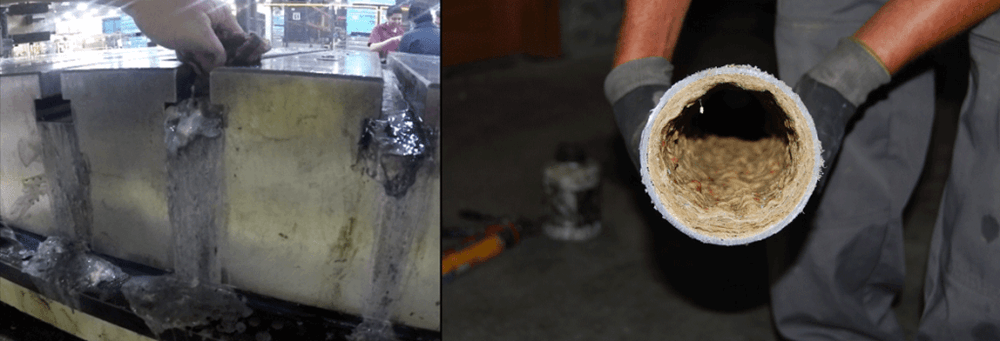
Hard water scale and biomass build-up are two other problems related to poor water quality. The water insoluble salts formed by reactions with hard water ions tend to “plate out” or deposit on pipes used for delivery of process solutions. This is widely acknowledged in pretreatment processes, where regular “descaling” preventive maintenance is practiced, but this is rarely (if ever) the case where stamping lubricants are in use.
Even more troubling, is that these deposits build-up gradually, and may escape detection for long periods of time. It is not uncommon for these issues only to be discovered after other, more serious issues manifest—like solution spoilage, restricted flow of fluid delivery lines or shortened equipment life of pumps, filters and application equipment
Biomass and biofilms (the physical manifestation of large microbial colonies in process fluids) are nurtured in these sediment layers and can prove more difficult to purge from systems later when addressed chemically. Biomass and biofilms tend to slough off top/upper layers and often remain in processes for long periods of time after scale and sediment are addressed. The same acidic solution/s used to descale process lines may not be effective at eliminating the various microbial colonies that were established.
IRMCO strongly recommends addressing problematic and/or inconsistent water quality to avoid potential, unforeseen and costly issues like the images above illustrate.


